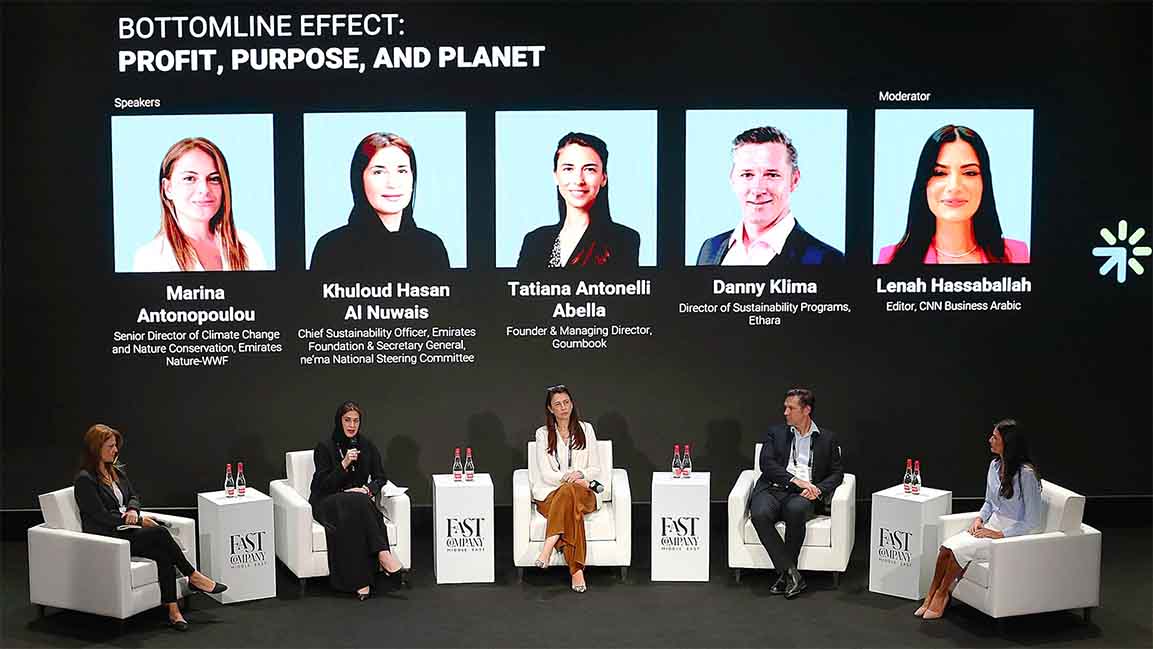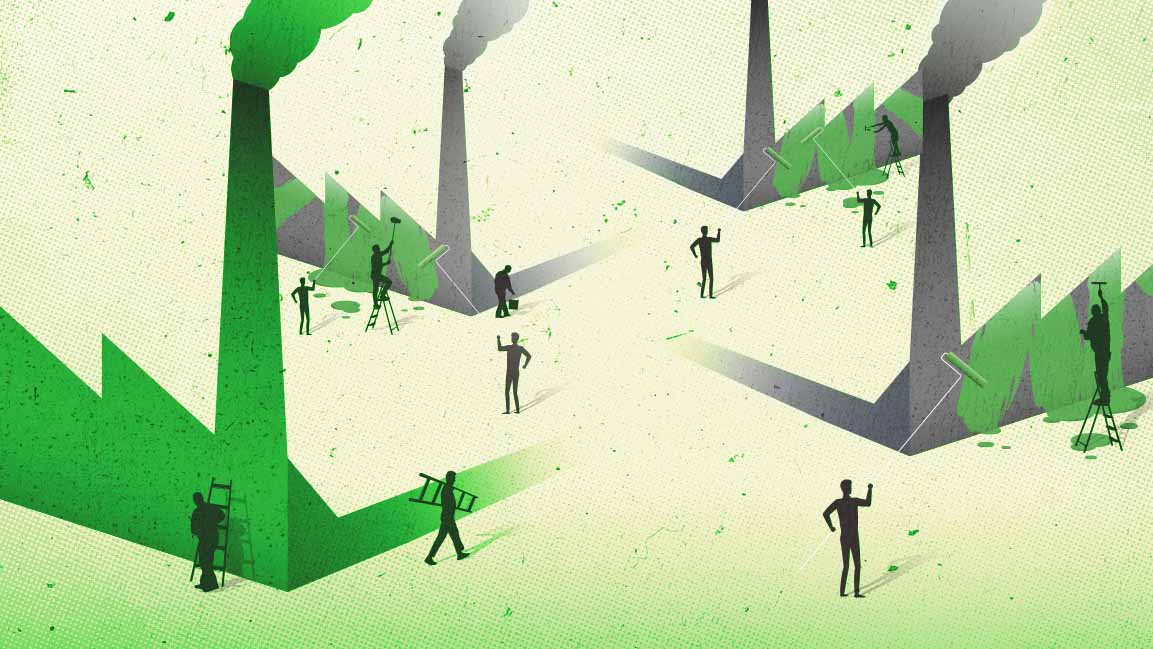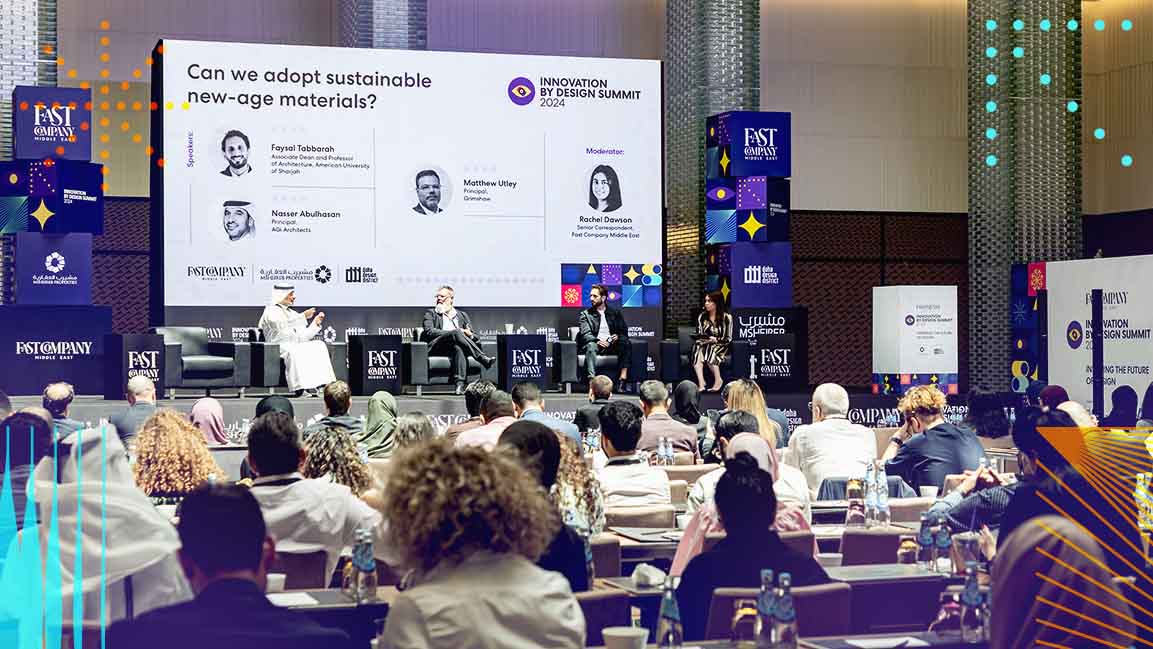- | 9:00 am
Can sustainability in the Middle East flourish without strong leadership?
The panel agreed that sustainability goes beyond a checkbox, emphasizing the need for leadership to drive agendas for long-term business viability

In the current business landscape, the pursuit of sustainability has evolved beyond a mere ethical consideration; it has become a strategic imperative with tangible implications for the bottom line. As the global discourse on environmental responsibility gains momentum, companies increasingly recognize that sustainable practices are crucial for safeguarding the planet and ensuring long-term financial viability.
To shed light on the symbiotic relationship between sustainability and enterprises, the Bottomline Effect: Profit, Purpose, and Planet panel of the Green Goals Summit 2023 delved into why going green is the way to sustain success in the business arena.
What is the biggest barrier to sustainability? In 2023, 33% of consumers said affordability was their biggest barrier to buying sustainably. Inflation and increased cost of living will grow this number.
BUSINESS RISKS
What is the most significant barrier stifling businesses from embracing sustainability? In terms of business risks, Marina Antonopoulou, Senior Director of Climate Change and Nature Conservation at Emirates Nature-WWF noted that five out of the top ten are linked to environmental and climate issues.
Antonopoulou stressed the complexity of environmental challenges, emphasizing the importance of evaluating the energy transition’s ramifications. She highlighted the corporate struggle to address climate change mitigation proactively and questioned how goals could be transformed into concrete actions.
“Despite corporations being in the early stages of their sustainability journey, challenges persist in measuring and tracking emissions accurately,” she said.
CSO AS CEO
The success of sustainable agendas within an organization is significantly enhanced when championed by its leadership. Invariably, the commitment to sustainability trickles down from the top, shaping the organizational culture and influencing stakeholders at every level, the panel agreed.
According to Tatiana Antonelli Abella, Founder and Managing Director of Goumbook, sustainability can only partially rely on having a manager and director. “It is unfair to place the entire responsibility on one person,” she said.
ESG is excellent as it provides a means to report progress, but the true foundation of sustainability must originate from the CEO and the board.
“Everyone within the organization must be fully engaged and aligned with sustainability goals. There is a need for a strategic approach to define the identity of the organization. As a community, we urgently seek concrete actions, eager to hear about the substantive efforts undertaken,” added Abella.
Agreeing with her, Khuloud Hasan Al Nuwais, Chief Sustainability Officer, Emirates Foundation & Secretary General, ne’ma National Steering Committee, said, “I believe that sustainability cannot be pursued as an isolated initiative; rather, it must be seamlessly integrated into the core of a company’s business and operations. That’s why I advocate for it to be a prominent item on the CEO’s agenda and ingrained in the culture and performance management of the organization. Sustainability transcends mere risk management; it is fundamentally about enhancing efficiency.”
Emphasizing leadership’s critical role in the decision-making process, Danny Klima, Head of Sustainability, Ethara, said, “Without the active participation of leadership, investments simply fail to materialize.”
BEYOND CSR AND ESG
Another point highlighted by the panel was that sustainability transcends the traditional boundaries of Corporate Social Responsibility (CSR) for businesses, evolving into a comprehensive strategic approach encompassing economic, environmental, and social dimensions.
Sustainability entails a fundamental shift in the way companies operate.
“Sustainability encompasses poverty alleviation, inclusion, land and water ecosystems. It surpasses the scope of Environmental, Social, and Governance (ESG) considerations, demanding more concerted efforts,” said Abella.
This is where the collaborative aspect becomes crucial. “Originating from a nation rooted in oil and gas, we aspire to pioneer sustainability.
However, acknowledging the challenges, we understand that this endeavor won’t be facile; it necessitates extensive collaboration among diverse organizations,” she added.
Embracing sustainability becomes a strategic imperative for companies seeking long-term viability in a rapidly changing global landscape.
“Companies need to recognize the materiality of nature, as they may not be fully aware of the natural ecosystems that can play a crucial role in helping them protect themselves,” Antonopoulou added.
As businesses increasingly recognize the intricate interplay between ecological, social, and economic factors, sustainability becomes a guiding principle shaping corporate responsibility, resilience, innovation, and future-proofing against emerging challenges.








































